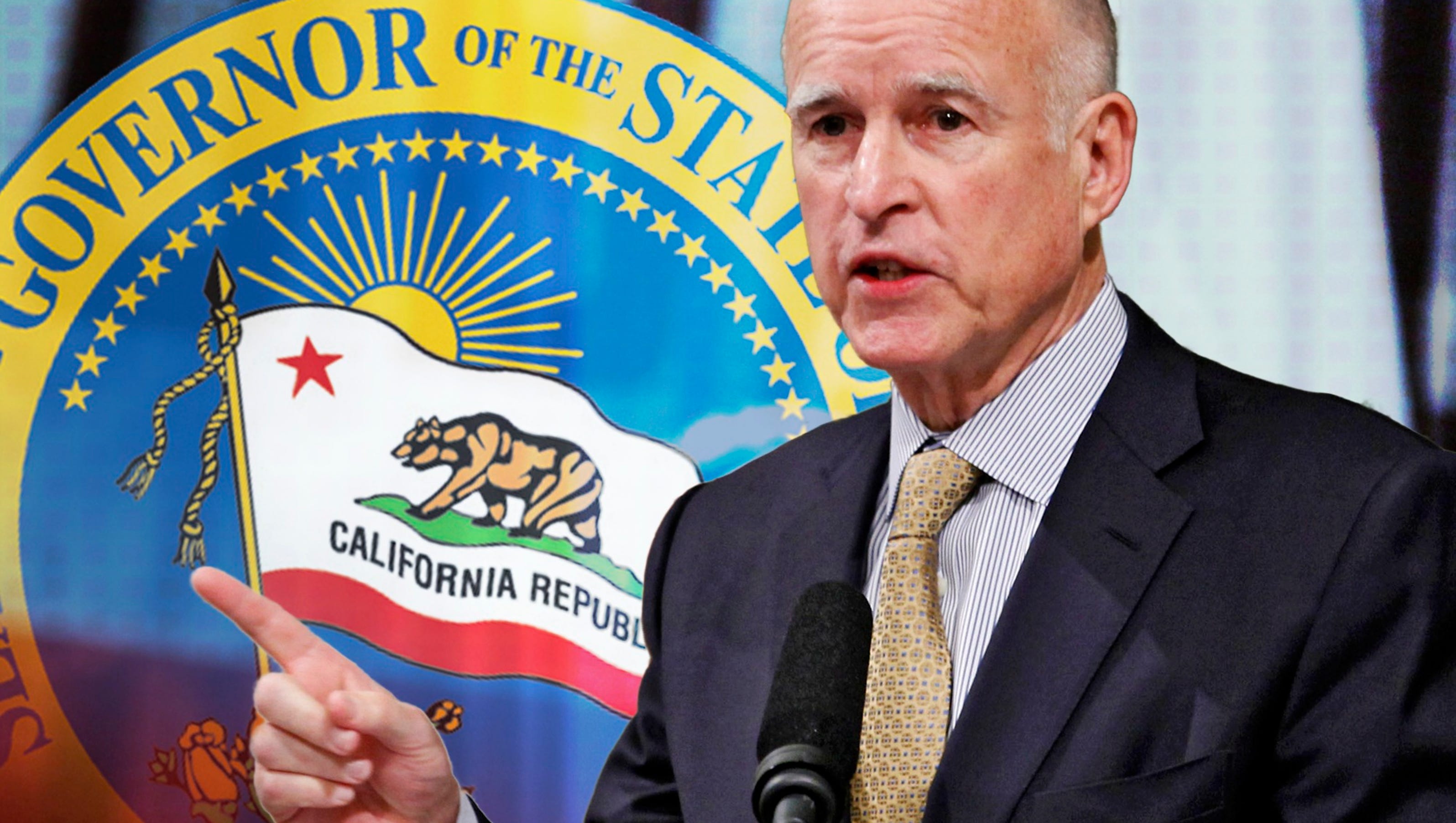Gov. Jerry Brown's signing of the state budget Thursday was a sharp contrast from the grim visages and rueful statements that came with the past decade's spending plans.
Instead, Brown and legislative leaders wore big smiles and proclaimed a new era of fiscal stability and aid for struggling Californians as the governor signed the $96.3 billion spending document into law at the State Capitol.
"It is a big day for school kids, it is a big day for Californians who don't have health care or don't have adequate health care," Brown said, claiming other states are studying California's plan enviously to see how it was accomplished.
Most new revenues -- driven by the Proposition 30 income- and sales-tax hike that voters approved in November, plus a resurgent economy -- will go to K-12 education, which is always the general fund budget's largest section. This budget dedicates 41 percent of its funding to public schools, and every district will get more money to spend per pupil, while disadvantaged students will get even more funding.
But the budget also starts restoring some of the deep cuts made in recent years, with funding for dental care for the poor, child-care subsidies for working families and beleaguered trial courts. Meanwhile, it creates a $1.1 billion reserve and makes small payments toward the state's $27 billion "wall of debt."
The governor acknowledged California still has sizable long-term liabilities -- most notably its public employee pension funds -- but said that for the first time in years it has a balanced, on-time budget that addresses Californians' needs while remaining fiscally responsible. He used his line-item veto power to pare about $40 million, spread across a long list of programs, from the Legislature's plan.
State Senate President Pro Tem Darrell Steinberg said "budgets represent signposts of great progress or difficult times," and this one is the former: "Real people, hurt for so long, will get some help."
The biggest noneducation budget increase this year is for mental health services, he noted. "Thousands of people will benefit as a result, no more desperate family members having to see their loved ones in emergency rooms or in jails or on the streets."
Assembly Speaker John Perez, D-Los Angeles, said the budget "builds on the progress we've made over the last couple of years; he added that he's proud that California is creating jobs at a faster rate than any other state.
"It is a budget that says the fiscal health of the state is on the mend ... but also that we're committed to the health and well-being of all of the people who live in California," Perez said.
 Among Perez's and fellow Democrats' biggest wins in this budget are middle-class scholarships, which will kick in for eligible Cal-State University and University of California students in the 2014-15 school year. When fully effective in 2017-18, they'll cover 10 percent of tuition and fees for families earning between $125,000 and $150,000; 25 percent for those earning less than $125,000; and 40 percent for those with a family income of $100,000 or less. CSU alone estimates 150,000 students may qualify.
Among Perez's and fellow Democrats' biggest wins in this budget are middle-class scholarships, which will kick in for eligible Cal-State University and University of California students in the 2014-15 school year. When fully effective in 2017-18, they'll cover 10 percent of tuition and fees for families earning between $125,000 and $150,000; 25 percent for those earning less than $125,000; and 40 percent for those with a family income of $100,000 or less. CSU alone estimates 150,000 students may qualify.
Brown also Thursday signed a separate bill to expand Medi-
Cal eligibility to more than 1 million low-income people and streamline the program's eligibility and enrollment rules -- a key part of implanting the federal Affordable Care Act, known as Obamacare.
The state Senate approved the main budget bill 28-10 while the Assembly passed it 54-25 two weeks ago, with Republicans in both houses opposed.
Senate Republican Leader Bob Huff, R-Brea, said the budget "includes some positive steps forward in education funding and reform, but it does not keep the campaign promises made to Californians that all the money from the Proposition 30 tax increases would go to fund schools." He said he's also disappointed that the budget doesn't pay down enough debt or address the state's huge pension liabilities.
"Keeping promises to the people of California on education funding and paying off our state debt load so as not to burden future generations with our mistakes should have been the first priority, but unfortunately that did not happen," he said.
California Chief Justice Tani Cantil-Sakauye said she's "both pleased and concerned." On one hand, it's the first time in five years that the judicial branch hasn't taken more cuts, "the first step in the long road to restoring funding."
"On the other hand, we have a long way to go. In the last several years, about $1 billion in general fund support has been taken from the judicial branch," she said. "And we are out of one-time solutions and funding transfers to blunt the impact of such massive budget reductions in the future."
The extra $63 million in this year's budget may not be enough to reopen closed courts, bring back laid-off workers or stop furloughs, she said, "and it absolutely won't be enough to provide the kind of access to justice the public deserves."






.jpg)







